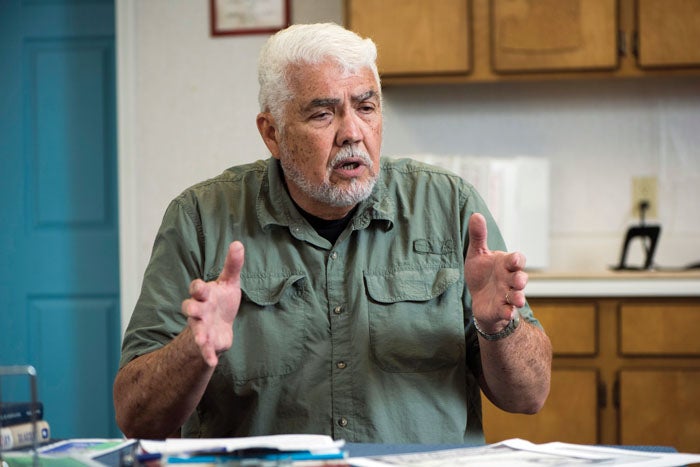Fighting the Opioid Crisis in Rowan County — Treatment
Published 12:00 am Sunday, August 20, 2017

- JON C. LAKEY / SALISBURY POST Dr. Oscar D. Ramirez, who holds a specialty in emotional trauma and substance abuse. Capstone Recovery mission statement indicates the program provides a safe Godly environment where women whose lives have been affected by prescription/illicit drug abuse and/or other life-controlling issues, can be educated and encouraged to lead fully functional lives as productive citizens in the community. Wednesday, August 16, 2017, in Salisbury, N.C.
By Shavonne Walker
shavonne.walker@salisburypost.com
SALISBURY — The rate of relapse for people who are addicted to opioids such as heroin has been shown to be as high as 91 percent and, of them, 59 percent relapsed within one week of being discharged from a detox program, according to the National Institute of Drug Abuse.
Rowan County, like many communities across the nation, are in the midst of an opioid crisis with dozens overdosing on any given week. Local authorities and treatment service providers say there is help, but the first step is seeking out the help.
Research has shown addiction is treatable and that there are interventions that have helped individuals stop abusing drugs and lead productive lives.
Locally, Novant Health Rowan Medical Center has plans to open an intensive outpatient program targeted at substance abuse by the end of the year. The program will allow patients to be discharged from the hospital but return daily for therapy, counseling and assistance for substance abuse problems.
Adjacent to the outpatient program will be a psychiatric clinic that will also work with patients who have substance abuse problems.
According to Dr. Oscar Ramirez, at the heart of treating addiction is dealing with the root cause of an individual’s issues. Ramirez is the director of counseling at Capstone Recovery and specializes in trauma and patients with substance abuse issues.
Capstone Recovery Center is a faith-based transition center for women. Capstone, located at 418 W. Innes St., provides counseling services as well as programs to transition women to become functional members of the community.
“My job is not to tell them what their problem is, but my job is to help them with self-discovery,” he said.
Ramirez said life is a series of encounters of different situations, and “many of those situations involve some kind of pain and so the choices we make when we are in pain will determine our lifestyle.”
A normal person will be circumspect and will have a good level of situational awareness, Ramirez explained. They will have an awareness of consequences. The addictive mind is very narrowly focused. Consequences don’t enter into their thinking frame.
When Ramirez meets with patients who face drug addiction as part of the counseling session, he shows them a butter knife with the tip broken off.
“When you try to use something for a purpose other than what it was originally designed for, the consequences of that is the instrument becomes bent, twisted or broken. People come in here and they are bent, twisted and broken because they’ve tried to use all the resources that God has given to them for purposes other than how God had designed,” Ramirez said.
“The process is to deconstruct who you think you are and what you think will give you pleasure, what you think your solution to your life problems may be and go to God who designed the instrument and find out what is my purpose in life and how can I see myself the way he sees me,” he said.
For more information about Capstone Recovery Center and its services, visit the website at www.capstonerecoverycenter.org or call 704-749-0797.
Contact reporter Shavonne Walker at 704-797-4253.



